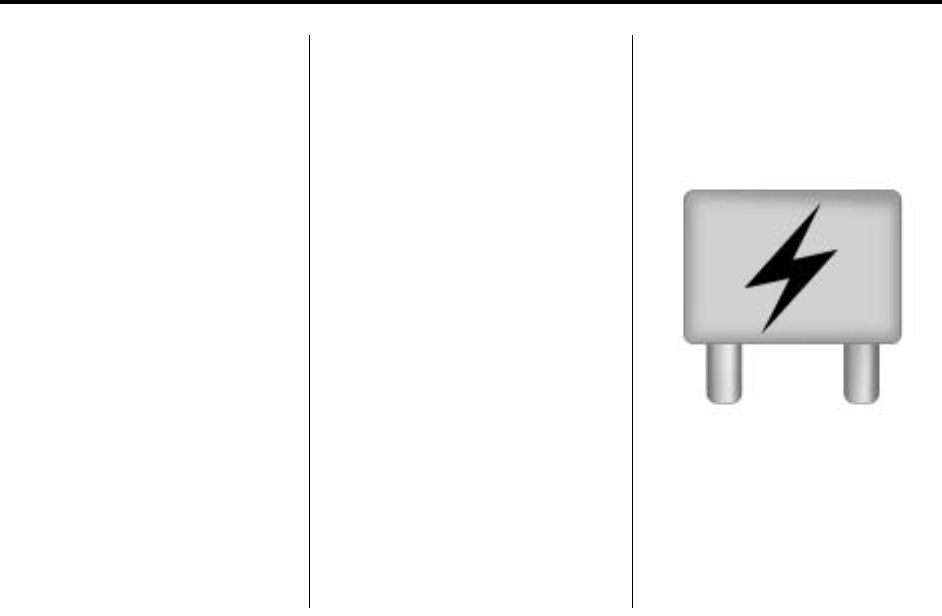
Vehicle Care 9-41
Fuses and Circuit
Breakers
The wiring circuits in the vehicle are
protected from short circuits by a
combination of fuses and circuit
breakers. This greatly reduces the
chance of damage caused by
electrical problems.
To check a fuse, look at the
silver-colored band inside the fuse.
If the band is broken or melted,
replace the fuse. Be sure to replace
a bad fuse with a new one of the
identical size and rating.
Fuses of the same amperage can
be temporarily borrowed from
another fuse location, if a fuse goes
out. Replace the fuse as soon as
you can.
To identify and check fuses, circuit
breakers, and relays, see Engine
Compartment Fuse Block (CTS)
on
page 9‑41
or Engine Compartment
Fuse Block (CTS-V)
on page 9‑45
or Engine Compartment Fuse Block
(CTS Wagon)
on page 9‑48
and
Rear Compartment Fuse Block
(CTS)
on page 9‑51
or Rear
Compartment Fuse Block (CTS-V)
on page 9‑53
or Rear
Compartment Fuse Block (CTS
Wagon) on page 9‑55.
Engine Compartment
Fuse Block (CTS)
The underhood fuse block is located
on the passenger side of the engine
compartment.
Lift the fuse block cover to access
the fuses.
Notice: Spilling liquid on any
electrical components on the
vehicle may damage it. Always
keep the covers on any electrical
component.


















